Double Pipe Heat Exchanger Trainer
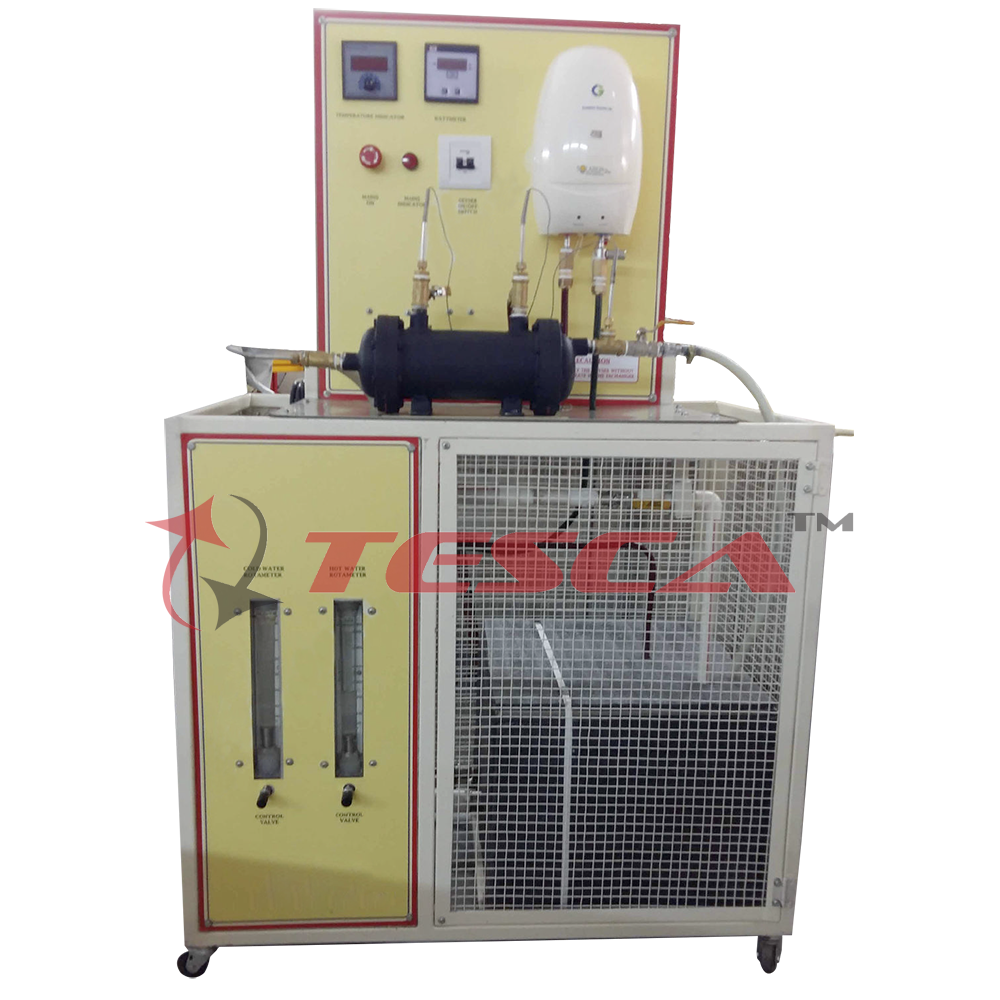
Order Code: 32369
Category: Thermodynamics Lab
Features Mobile, compact, comprehensive, sturdy design. Fully instrumentation for experimentation of Double pipe heat exchanger. Direct reading of temperature, voltmeter and ammeter measurement. In Tesca Double Pipe Heat Exchanger Trainer 32369...
SPECIFICATION
Features
Mobile, compact, comprehensive, sturdy design.
Fully instrumentation for experimentation of Double pipe heat exchanger.
Direct reading of temperature, voltmeter and ammeter measurement.
In Tesca Double Pipe Heat Exchanger Trainer 32369 Cold water flows through the exchanger in a single pass, whereas hot water in recycled to a heated reservoir. Both fluid flow rates, their direction (concurrent or countercurrent), and the inlet hot temperature are monitored. All other inlet and outlet temperatures are monitored. In this way the rate of heat transfer find out.
Heat exchangers are so designed that chemical reactions or energy-generation processes can be carried out within them. The exchanger then becomes an integral part of the reaction system and may be known, for example, as a nuclear reactor, catalytic reactor, or polymerizer.
Technical Specifications
1/4 inch tube inside 1 inch tube heat exchangers made of copper and stainless steel.
Steam-water blending system,
Electronic flow meters,
Thermocouples and temperature display.
Experimental Set-up
A device used to transfer heat from a fluid flowing on one side of a barrier to another fluid (or fluids) flowing on the other side of the barrier. It is used to accomplish simultaneous heat transfer and mass transfer; heat exchangers become special equipment types. If there is a change in phase in one of the flowing fluids—condensation of steam to water.
Heat exchangers are normally used only for the transfer and useful elimination or recovery of heat without an accompanying phase change. The fluids on either side of the barrier are usually liquids, but they may also be gases such as steam, air, or hydrocarbon vapors; or they may be liquid metals such as sodium or mercury. Fused salts are also used as heatexchanger fluids in some applications.
Experiments
Determine heat transfer coefficients for sensible heat transfer.
Operation & Maintenance Manual
Self-explanatory operating & maintenance manual will be provided. This will include Theory, operating procedure, standard results, and maintenance procedures.
Requirement
Ÿ 220-240V, 50Hz, 3 phases or 380-440V, 50Hz, 3 phases
Cold water connection: 500...1000L/h

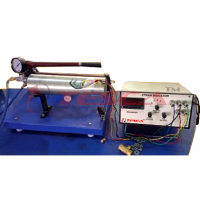
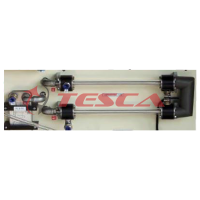
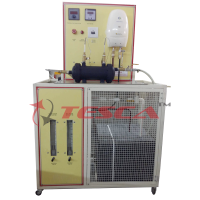
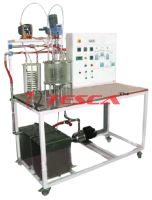
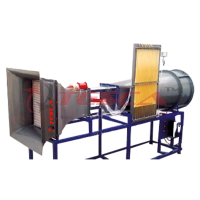
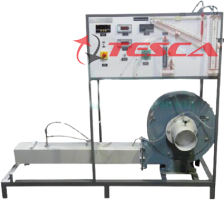

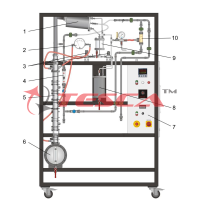
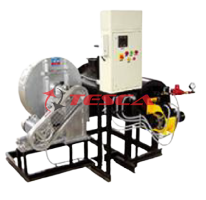

 91-9829132777
91-9829132777